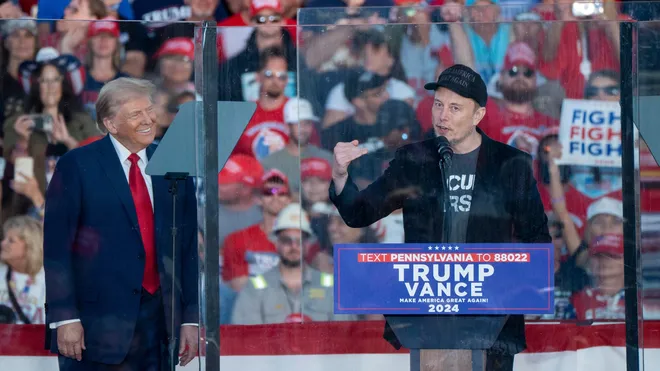In a surprising development, Elon Musk, the world’s richest individual and CEO of X, Tesla, and SpaceX, has taken on a role in Donald Trump’s administration as the head of government efficiency. With a monumental task ahead, Musk is expected to propose measures aimed at reducing federal spending by an astonishing $2 trillion. His appointment underscores Trump’s strategy of leveraging private-sector expertise to reform government spending and enhance operational efficiency.
In this newly established position, Musk, recognized for his disruptive methods in technology and business, will navigate the intricate landscape of Washington’s bureaucracy. With a focus on innovation and streamlined processes, he is anticipated to challenge entrenched federal practices, seeking to identify and eliminate wasteful expenditures. Musk has previously expressed concerns regarding government inefficiencies, advocating for a more results-oriented approach to public spending.
In a statement, Musk alluded to his strategy, stating, “The goal is to ensure every taxpayer dollar is utilized effectively by removing redundancies and outdated programs.” Known for his embrace of automation and efficient practices at his companies, Musk’s strategy is likely to involve tech-driven solutions and thorough spending audits across various departments.
As part of this ambitious initiative, Musk will reportedly work closely with government officials, agency leaders, and a dedicated team of budget analysts. His proposals will be presented to Congress as part of the administration’s wider fiscal policy, aiming to strike a balance between efficiency and effectiveness.
While Musk’s history indicates he can drive significant change, some experts caution that government structures operate within complex regulatory frameworks that necessitate a tailored approach. Nonetheless, with Musk’s visionary leadership and Trump’s backing, this initiative has sparked both optimism and skepticism regarding the potential impact on federal operations.





